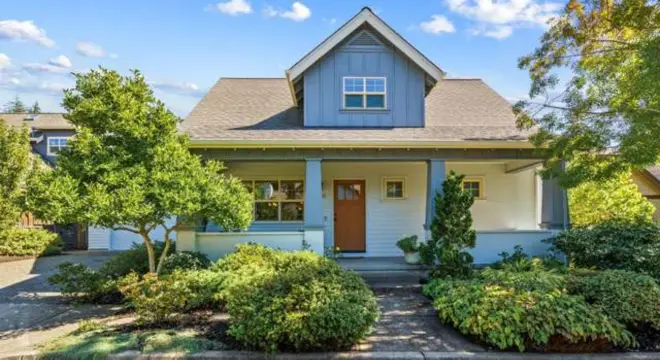Low Income? Here’s How You Can Still Buy a House
I’ll be honest with you — the first thing most people ask me when I talk about buying a home on a modest income is, “Is it even realistic?” And I get it.
Housing prices feel out of reach, and the way banks throw around terms like “debt-to-income ratio” or “median income” can make you feel like the odds are stacked against you.
But here’s the truth: owning a home with a lower income isn’t just possible — it’s happening every day. The key is understanding how “low income” is defined and what lenders actually look at beyond your paycheck.
What “Low Income” Really Means?
“Low income” isn’t the same everywhere. In the U.S., it usually ties back to something called Area Median Income (AMI). For example, if the median household income in your city is $80,000, then making 80% or less of that amount might classify you as low or moderate income.
In some states, housing programs are available even if you earn up to 120% of the local median.
Why does this matter? Because eligibility for loans, grants, and assistance programs often depends on how your income compares to your area’s AMI, not just on the raw number you see on your pay stub.
What Lenders Care About?
One of the biggest misconceptions I hear is, “If my income is low, I’ll never qualify.” That’s not entirely true. Lenders look at a bigger picture:
- Credit score: A higher score can offset a lower income by showing you’re reliable with payments.
- Debt-to-Income ratio (DTI): If too much of your monthly income goes to debt, it raises a red flag. A DTI under 36% is golden, but many lenders stretch to 43% or even 50% in some programs.
- Job stability: Having steady employment, even at a lower salary, helps lenders trust your repayment ability.
- Savings habits: Even a modest emergency fund signals responsibility and makes approval easier.
So while your income matters, it’s only one part of the equation. I’ve seen buyers with incomes under $40,000 get into homes simply because they kept their debts in check, built a decent credit score, and tapped into local assistance programs.
Getting Financially Ready Before You Shop

I’ve sat with a lot of people who think, “Once I find the right program, I’m good to go.” But here’s the catch — if your financial profile isn’t solid, even the best loan options might slip away. That’s why this prep stage is where you quietly win half the battle.
Boosting Your Credit Score
Your credit score is like your reputation with lenders. The higher it is, the better your terms. Start small: pay bills on time, keep credit card balances low, and if you’ve got old debts in collections, work on settling them. Even a 20–30 point bump can save you thousands over the life of a loan.
Manage Debt & Improve Your DTI
Lenders are obsessed with your debt-to-income ratio (DTI). Zillow notes that while 36% is ideal, many lenders allow up to 43%, and certain programs stretch it to 50%. Still, if you can chip away at credit cards or car loans before applying, you’ll not only look better on paper but also free up cash for future home costs.
Don’t Forget the Hidden Costs
A mortgage isn’t the whole story. Property taxes, insurance, repairs, HOA fees, and those little “fix this, replace that” expenses add up. I tell clients to budget at least 1% of the home’s price per year for maintenance alone. Missing these numbers is what traps many first-time buyers.
Smart Saving Hacks for Your Down Payment
If setting aside money feels impossible, automate it. Set a small weekly transfer into a dedicated “home fund.” Explore employer housing benefits or even side gigs that funnel directly into savings. You don’t need to stash $20k overnight — steady, visible progress is what keeps you motivated.
And if you’re preparing for open houses, it’s worth brushing up on open house etiquette rules every homebuyer must know so you make the right impression from day one.
Programs & Loan Options Designed for Low-Income Buyers
Here’s where most people’s eyes light up — the part where programs step in to bridge the gap. The good news? There are more options than most buyers realize.
Federal Programs
- FHA loans: 3.5% down with credit scores as low as 580.
- VA loans: No down payment for veterans, service members, and spouses.
- USDA loans: Zero down if you’re buying in eligible rural areas.
- Fannie Mae HomeReady & Freddie Mac Home Possible: 3% down, income limits tied to AMI, plus required homeowner education.
State & City Programs
Every state has its own housing authority offering grants, forgivable loans, or reduced-interest mortgages. Many city governments also run local down payment assistance programs — but they often go unnoticed because buyers don’t know where to look.
Special Programs
- Good Neighbor Next Door: Teachers, first responders, and law enforcement officers can get up to 50% off certain HUD homes.
- Housing Choice Voucher: In some places, vouchers can be applied toward homeownership, not just rent.
A Quick Global Note
If you’re outside the U.S., don’t skip this section. For example, UK runs Shared Ownership schemes where you buy a portion of the home and pay rent on the rest. The point is: check your own country’s housing board — chances are, something exists.
Which of these programs looks like the best fit for you? Drop a comment below — I’d love to hear what you’re considering.
Creative Alternatives to Traditional Homeownership

Not everyone fits neatly into the mortgage system, and that’s okay. Here are other paths worth considering:
Rent-to-Own Agreements
Think of it as “test-driving” a home. You rent for a set period with an option to buy later, and part of your rent may go toward the purchase price. It’s not perfect, but it helps you lock in a home while working on your credit or savings.
Shared Equity & Co-Ops
In some cities, nonprofit or community housing programs let you buy into a property at a reduced price in exchange for sharing future appreciation. It’s a way to cut entry costs without carrying the whole burden.
Co-Buying with Friends or Family
I’ve seen siblings and even best friends pool resources to qualify together. If you go this route, get a legal agreement drafted that outlines responsibilities and exit options. Trust me — it saves relationships down the road.
Buying Foreclosed or Fixer-Upper Homes
Yes, they can be cheaper, but they often need serious repairs. Get an inspection and budget realistically. What looks like a bargain can become a money pit if you skip due diligence.
By the way, I often share quick home-buying hacks, new program updates, and budget-friendly tips in a WhatsApp updates feed. If you like getting bite-sized advice without reading long articles, you might find it handy.
Finding the Right Support Team
Even with the right prep, you don’t want to walk this path alone. The right people around you can make or break your deal.
Picking the Right Agent
Work with an agent who understands low-income buyer programs. A seasoned agent can point you toward down payment grants you never knew existed or negotiate seller credits that reduce your upfront costs.
Shopping for Lenders
Don’t stop at the first lender who pre-approves you. Compare at least three offers — rates, fees, and hidden charges vary more than most people realize. Sometimes a local credit union beats a big bank hands down.
Pre-Approval vs. Pre-Qualification
Pre-qualification is a casual estimate. Pre-approval is a lender saying, “Yes, we’re ready to lend you X amount.” Sellers take you far more seriously when you’re pre-approved, and it helps you stay disciplined in your budget.
Beyond financing, think about the long-term picture too — the benefits of buying a home you can’t ignore often outweigh the short-term hurdles of saving and qualifying.
Avoiding Common Pitfalls

Buying a home on a tight income is already challenging — don’t make it harder by falling into the traps I see again and again.
- Overstretching your budget. Just because the bank says yes doesn’t mean it’s smart. Stay within a number that lets you breathe.
- Skipping an inspection. Especially with foreclosures or fixer-uppers, hidden problems can wipe out your savings overnight.
- Not reading the fine print. Some assistance programs have strings attached — like living in the home for a minimum number of years.
- Forgetting long-term costs. Maintenance, property taxes, and HOA fees never go away. Plan for them now.
Think of this section as a safety net — the lessons that save you money and regret down the road.
Should You Buy Now or Wait?
Here’s the million-dollar question: Is it smarter to wait and save more, or buy now before prices rise further?
There’s no one-size-fits-all answer. If your local market is heating up and rents are eating a big chunk of your income, buying sooner (even with help from programs) can make sense. On the other hand, if your credit score is shaky or you’re carrying heavy debt, waiting six months to a year might give you a stronger footing.
One way I like to look at it: compare your rent to what a mortgage would cost on a modest home. If you’re already paying nearly the same in rent, buying means you start building equity instead of lining your landlord’s pocket.
Ask yourself: Would waiting help me fix the weak spots in my profile, or just keep me stuck paying rent?
If you’re worried about whether your purchase will pay off, here are 7 smart signs the home you’re buying will retain its value, which can give you extra peace of mind.
A 90-Day Roadmap to Homeownership
If this process feels overwhelming, break it into chunks. Here’s a simple plan I’ve seen work for low-income buyers:
- Days 1–30: Pull your credit report, start tackling debts, and set up a budget. Even small progress matters.
- Days 31–60: Research local and federal programs. Talk to at least two lenders and ask about pre-approval.
- Days 61–90: Narrow your search, get pre-approved, and connect with an agent who knows assistance programs.
By the end of 90 days, you won’t just wish you could buy a home — you’ll be in the driver’s seat.
Want to explore more smart home-buying tips? Visit our Home Buying Guides for practical insights tailored for first-time and budget-conscious buyers.
Disclaimer: This article is for informational purposes only and should not be taken as financial or legal advice. Home-buying programs, eligibility, and loan terms vary by state, lender, and individual circumstances. Always consult a certified financial advisor or housing counselor before making decisions.


